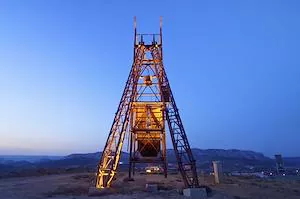Elimination of Restrictions to Crude Oil Exports

1. Introduction
Given the recent devaluation of the Argentine Peso and the restrictions for transfer of funds abroad, local upstream producers became increasingly attracted to export crude oil rather than selling it to the local market. The local market offers prices in Pesos which are significantly lower than international market prices in US dollars, and payments made to upstream producers locally are trapped in the “corralito” of the Argentine financial system upon payment.
In particular, the supply of gas oil became insufficient. Gas oil is crucial for the Argentine transport and agricultural sectors. Over the years, gas oil has been subsidized by a favorable tax treatment compared to gasoline. This has resulted in an artificially high consumption of gas oil in Argentina, and in a need of importing gas oil to satisfy local demand.
From April 1991 to January 2002 the Argentine Peso was pegged to the US dollar at a one to one rate. The dollar increased to almost Pesos 4 (400%) during the first semester of 2002. On the other hand, local prices of gas oil in Pesos only increased by almost 100% from Pesos 0.57 to Pesos 1.1 per liter approximately. At international prices in US dollars, gas oil became too expensive to import and supply therefore decreased.
2. Restrictions on Exports
To ensure the supply of gas oil would be sufficient, the Argentine Government took various measures, including a requirement that exports of gas oil, liquid gas and crude oil be registered with the Secretariat of Energy and complied with certain conditions.
By Decree No. 645/2002 the Argentine Government created a Registry of Agreements of Gas Oil Export Transactions under the jurisdiction of the Secretariat of Energy. As of the date this Decree became effective, among the documentation that is required to be filed with customs authorities to export gas oil, a registration of exports certificate issued by the Subsecretary of Fuels is required to be included.
The Argentine Government subsequently issued Decree No. 867/2002 : (i) declaring a nationwide hydrocarbon emergency as from May 24, 2002 until September 30, 2002, (ii) extending to liquid gas and crude oil exports the registration requirement provided under Decree No. 645/2002, (iii) delegating in the Secretariat of Energy the power to determine the volumes of production of liquid gas and crude oil that must be destined to supplying the local market.
Exercising its delegated powers, the Secretariat of Energy issued among others Resolutions Nos. 140/02 , 166/02 and 341/2002 .
Resolution No. 140/2002 provided that: (a) oil producers would not be entitled to export more than 36% of their oil production during the months of June, July, August and September 2002; (b) no producer and exporter of crude oil would be entitled to export a larger amount of crude oil than that exported by the same company in the same months of the year 2001; (c) any production of June to September 2002 which is greater than the production of June to September 2001 may be freely exported; and (d) this export “quota” would expire on October 1, 2002, or before if the hydrocarbons crisis was resolved.
Resolution No. 166/2002 flexibilized the export restrictions provided in Resolution No. 140/2002, although these were still left in place. The "flexibilization" resulted from considering periods of four months for the compliance of the export quota, as opposed to monthly periods.
Resolution No. 341/2002 finally abrogated Resolutions Nos. 140/2002 and 166/2002, which are no longer effective.
3. Current Situation
The exports of gas oil, liquid gas and crude oil require to be registered in the Registry of Exports Transactions under the Subsecretary of Fuels, as provided under Decrees Nos. 645/2002 and 867/2002. However, the export quota restrictions provided under Resolutions Nos. 140/2002 and 166/2002 are no longer effective.
This insight is a brief comment on legal news in Argentina; it does not purport to be an exhaustive analysis or to provide legal advice.